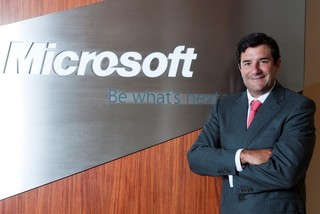Estonian officials announced plans last week to move the nation to electronic voting in time for the country's 2003 general election.
Published:
5 April 2001 y., Thursday
The shift is expected to boost voter participation among the young in a country that has voraciously adopted internet technology and mobile communications.
Despite a per capita GDP of only $3,778, between 21% and 40% of the population is online. Half of all secondary schools in the country are now wired to the internet. 95% of Estonian public employees have a computerized workplace. At home, 19% of the population owns a computer, with approximately 53% of them internet-connected.
As is true throughout emerging internet markets, the internet is used heavily by young Estonians. According to surveys by BMF Gallup Media, more than half of teens in the country (15 to 19 years old) surf the web. For most Estonians, work is the primary place of access: 74% of the population reports using the internet during the workday, and only 9% report use it during the weekend.
Estonian governmental policies have stimulated internet adoption and the diffusion of information technology throughout the country. In February 2000, the Estonian parliament approved a proposal to guarantee internet access as a nationwide constitutional right. The government has also established free internet access centers (located along the country's major highways) to ensure equitable access to the technology. It has also initiated the innovative "Tiger Leap" program which ensures that every Estonian school is wired to the Internet.
Virtually the entire country has mobile phone coverage, with three operators providing GSM services. Today about 29 percent of the population uses GSM services. Estonian mobile operators have been among the first in the world to introduce WAP services to their customers.
The country has a high mobile phone penetration rate for the Baltic region. According to Estonian Telecom, 36.8% of the population subscribes to mobile phone service, a substantial increase from 24.9% in 1999. As handsets that allow internet connections are purchased by Estonians, the number of people accessing the internet through their mobile phone will soar.
Šaltinis:
emarketer.com
Copying, publishing, announcing any information from the News.lt portal without written permission of News.lt editorial office is prohibited.
The most popular articles
Software company announced new structure_ of it_s business.
more »
 The electronic vignette system in the Slovak Republic has become unique in the world thanks to the speed of implementation and increase in the revenues from the collection carried out by SkyToll a.s. on behalf of the Slovak government.
more »
The electronic vignette system in the Slovak Republic has become unique in the world thanks to the speed of implementation and increase in the revenues from the collection carried out by SkyToll a.s. on behalf of the Slovak government.
more »
 Unisys has promoted Perla Do Amral to a key leadership role, becoming director of service desk operations for the U.S.-based IT company’s managed services centers in Latin America.
more »
Unisys has promoted Perla Do Amral to a key leadership role, becoming director of service desk operations for the U.S.-based IT company’s managed services centers in Latin America.
more »
 Cesar Cernuda is a Microsoft veteran of 19 years, and has served in several senior leadership positions for Microsoft Business Solutions, including overseeing Microsoft’s ERP and CRM business worldwide.
more »
Cesar Cernuda is a Microsoft veteran of 19 years, and has served in several senior leadership positions for Microsoft Business Solutions, including overseeing Microsoft’s ERP and CRM business worldwide.
more »
 Unisys received a contract from NASA Langley Research Center (LaRC) to continue to deliver advanced hardware, software, and systems integration for flight simulation projects at the agency.
more »
Unisys received a contract from NASA Langley Research Center (LaRC) to continue to deliver advanced hardware, software, and systems integration for flight simulation projects at the agency.
more »
 Unisys Corporation reported third quarter 2015 results.
more »
Unisys Corporation reported third quarter 2015 results.
more »
 On the 10th–15th, this September, RAI Exhibition and Congress Centre in Amsterdam will hold the 48th international exhibition-conference dedicated to electronic media and entertainment industry IBC 2015.
more »
On the 10th–15th, this September, RAI Exhibition and Congress Centre in Amsterdam will hold the 48th international exhibition-conference dedicated to electronic media and entertainment industry IBC 2015.
more »
 Unisys Corporation announced the completion of the initial phase of testing of a facial recognition system at Dulles International Airport, Virginia, to help Customs and Border Protection (CBP) to identify imposters attempting to enter the United States using passports that are fraudulent or do not belong to them.
more »
Unisys Corporation announced the completion of the initial phase of testing of a facial recognition system at Dulles International Airport, Virginia, to help Customs and Border Protection (CBP) to identify imposters attempting to enter the United States using passports that are fraudulent or do not belong to them.
more »
 Television was invented back in 1884, when German Paul Gottlieb Nipkow came up with the idea to scan images using a rotating metal disc with a spiral pattern of holes in it. When the disc was spinning, each hole would scan one brightly lit line of the image.
more »
Television was invented back in 1884, when German Paul Gottlieb Nipkow came up with the idea to scan images using a rotating metal disc with a spiral pattern of holes in it. When the disc was spinning, each hole would scan one brightly lit line of the image.
more »
 SuperCom, a leading provider of secure solutions for e-Government, Public Safety, HealthCare, and Finance sectors, announced its results for the quarter ended March 31, 2015.
more »
SuperCom, a leading provider of secure solutions for e-Government, Public Safety, HealthCare, and Finance sectors, announced its results for the quarter ended March 31, 2015.
more »
 Unisys Corporation today announced that Tom Patterson has joined the company as vice president for global security solutions, responsible for leading Unisys' security solutions business worldwide.
more »
Unisys Corporation today announced that Tom Patterson has joined the company as vice president for global security solutions, responsible for leading Unisys' security solutions business worldwide.
more »